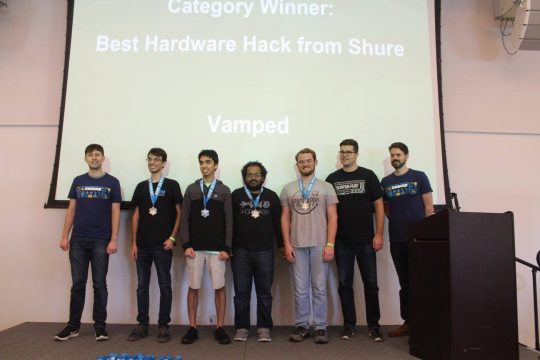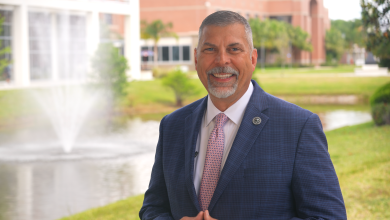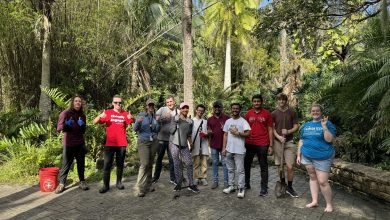Florida Tech Students ‘Hacking’ Their Way to Success, Recognition
Hands-on Challenges Can Foster
Professional Connections
MELBOURNE, FLA. — For those whose notion of hacking is centered on pilfered emails or violated bank accounts, hit control-alt-delete and reboot your thinking.
At Florida Institute of Technology and a growing number of universities, hacking is more akin to what the Urban Dictionary described as “a clever or elegant technical accomplishment.” Students are refining their skills to “hack” problems and find practical solutions.
Muntaser Syed, a graduate student in computer engineering at Florida Tech who leads an informal team of students in hackathons around the region and the country, said these events are positive and affirming and almost the polar opposite of the high-profile incidents of computer malfeasance that often make news.
“If you go to a hackathon, even if you don’t win, you come away with a lot: techniques, connections, a ton of cool ideas,” he said. “It is a very good way to highlight your skills.”
For Syed and his team, including undergraduates Christopher Wille, Christopher Woodle and Peter Tarsoly, who is president of the Florida Tech chapter of the Institute of Electrical and Electronics Engineers, the experiences they are gaining are a powerful compliment to their classroom learning.
Often running just 24 or 36 hours – sleep is a secondary concern, at best – hackathons usually involve making or developing something, Syed said, whether a robot or device, an app, a website or program, even a solution to a major problem.
At a hackathon hosted by the University of Miami in early December, Syed and his colleagues built an extraordinary gadget. It consisted of a headband with electrodes on it that would sense the wearer’s mood via brain waves – angry, mellow, etc. – and, using Bluetooth connectivity with smart appliances, adjust a room’s lighting and music accordingly.
Built in 24 hours, the system won the Florida Tech team a top spot at the hackathon.
“Hackathons are about creativity, the spontaneous bringing together of skill sets and experiences,” said Ken Gibbs, who retired after a 30-year career as an engineer at Harris Corp. and Northrop Grumman and now serves as an adjunct instructor at Florida Tech. He has been an informal advisor for Syed’s team and had both Woodle and Wille in his classes.
“This is a new way of doing engineering,” he said. “Engineering is changing.”
Hacking events also represent an increasingly effective and direct way to make professional inroads, Gibbs and Syed said. Companies like GE, IBM, Shure, Dell and Bloomberg can benefit in multiple ways, as described by Major League Hacking, a student hacking league that engages more than 65,000 students around the world annually: recruiting, brand marketing and developer relations.
One company, Gibbs recalled, was prepared to offer a student hacker “a job on spot.”
Syed speaks of similar experiences. “This is a very good way to get noticed by large companies,” he said.
For more information on hackathons and his student team, Syed said prospective participants may contact him at msyed2011@my.fit.edu. Find out more about Major League Hacking at https://mlh.io/.
###





